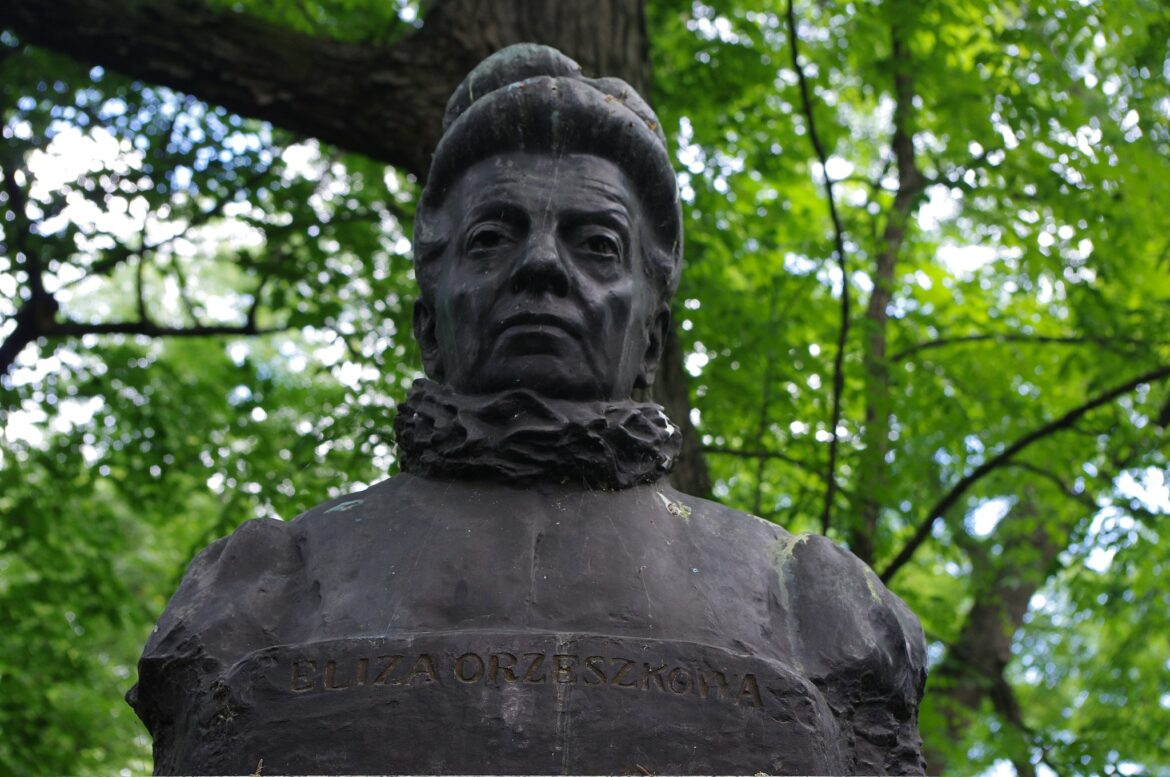Eliza Orzeszkowa, the author of the novel included in school readings, is probably associated with long and detailed descriptions of the Neman river’s nature but in her time Orzeszkowa was also a recognized journalist, an authority for many social groups, a person dealing with difficult social issues. Her popularity was most visible at the time of the writer’s death on May 18, 1910. She was honoured by many during numerous Polish and Jewish services. The press of the Kingdom of Poland under Russian rule published many memoirs and poems written over decades, which earlier weren’t printed due to censorship.
Eliza Orzeszkowa’s novel Gloria Victis, devoted to the January Uprising, is considered a turning point in the transition of Polish 19th-century culture from the domination of Positivism ideas to the national concept. Educated in the traditions of the pre-partition, multinational Republic of Poland, Eliza Orzeszkowa was keenly interested in the situation of the minority, primarily the Jewish minority. Her works, especially temporarily withheld by the Russian censorship “Meir Ezofowicz”, (1878) were aimed at mutual understanding and reconciliation between the Polish society and local Jewish communities.
Eliza Orzeszkowa, née Pawłowska, was born in Miłkowszczyzna in present-day Belarus, into a family of gentry and intelligentsia. She was married twice, with Piotr Orzeszko (1858) and Stanisław Nahorski (1894). From 1869, after the sale of the family property, she lived in Gron and made a living by writing.
In 1904, she was nominated for the Nobel Prize in Literature (becoming a competitor of Henryk Sienkiewicz), for her work in which “the human heart beats”. In her novels. she dealt with the problems of the Polish gentry after the January Uprising, poor ideological intelligentsia, Ruthenian and Jewish people.
In order to pay tribute to the deceased writer, the editors of the Warsaw magazine “Izraelita” published at the end of May 1910 the memories of Jewish socio-cultural activists devoted to her. The publication included an article by the historian of literature Wilhelm Feldman (1868-1919) [link: Towards assimilation. Wilhelm Feldman (1868-1919) – Dignity – DignityNews.eu] who visited the writer in Grodno in 1905. He recalled the indignation with which the Jews living in this city reacted when he suggested that they might have not known where Eliza Orzeszkowa lived. She was widely known among the local community not only for her creativity but also for the help she had provided to the people most in need during the Grodno fire in 1885.
Eliza Orzeszkowa was buried in the parish cemetery in Grodno.





